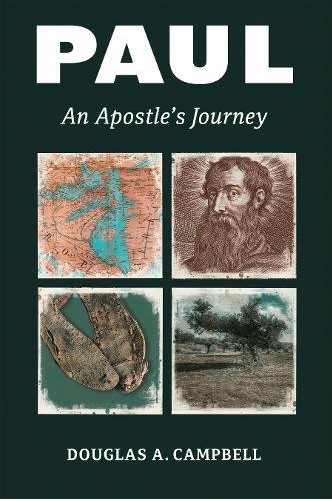 There are not a few proposals of what the apostle Paul was all about. From Augustine to Luther and Calvin Paul became increasingly a systematic theologian and it is not unfair to this tradition to say Paul was a soteriologian. That is, Paul was a fundamentally a theologian of (personal) salvation. So everything about Paul — his life and especially his letters — were framed through the categories of salvation. (Just take a look at the major “topics” in a major systematic theology and you will see the doctrines of the faith all shaped toward salvation.
There are not a few proposals of what the apostle Paul was all about. From Augustine to Luther and Calvin Paul became increasingly a systematic theologian and it is not unfair to this tradition to say Paul was a soteriologian. That is, Paul was a fundamentally a theologian of (personal) salvation. So everything about Paul — his life and especially his letters — were framed through the categories of salvation. (Just take a look at the major “topics” in a major systematic theology and you will see the doctrines of the faith all shaped toward salvation.
But some were not happy with sketching Paul as a soteriologian so there has been a development in the last three or four decades that focuses on Paul as a missionary and a missionary theologian. That is, he’s a missiologian, one whose theology is shaped entirely by his mission — but for most in this camp Paul’s mission was to save Gentiles and Jews, which ties the missiologians to the soteriologians, even if there’s a slight difference.
The new perspective on Paul, as I read it, is reshaping this discussion from a soteriologian to a missiologian to an ecclesiologian. That is, Paul’s focal point for his theology is the church, that is, Israel and the church, Jews and Gentiles in one Body of Christ, the church. Yes, he talks about salvation; Yes, he’s a missiologian; but his point of entry is his belief that God’s People, Israel, is being expanded to include Gentiles into the one family of God. That People is the mission of God (his missiologian emphasis) and the Gentiles and Jews become part of the People of God by way of salvation (soteriologian). These are not either-or options but orienting paradigms. Where do we begin? I think you will see in NT Wright’s Paul and the Faithfulness of God a strong emphasis on Paul as an ecclesiologian.
But this post is not about Tom Wright’s book but about another book, one by Sarah Ruden, Paul among the People. She’s got a pen that sometimes cuts through the paper, sometimes creates a witty lilt, often one can hear the poetic in her prose, but she always sets Paul in the context of his Roman and Greek culture. Ruden, a visiting scholar at Brown University, is a classics scholar and translator of major works, but her Christian faith (Quaker) turns her to Paul because she thinks lots of people have failed to get Paul right.
The big problem is they think he’s a bigot and she’s out to show that in his Roman and Greek contexts that just won’t work. While Ruden does not attend sufficiently to the Jewish evidence, nor does she always cover all of the issues that need resolution, each of her chapters is worth reading by college or seminary students — and this book is eminently accessible and not a little bit opinionated at places. Sometimes gloriously so. I’d place her in the ecclesiologian camp for interpreting Paul.
“I am a Christian,” she says in the opening paragraph to the book, “but like many, I kept Paul in a pen out back with the louder and more sexist Old Testament prophets. Jesus was my teacher; Paul was an embarrassment.” Her “grumpy pants Paul” has become — the more she studies him in context — a Paul who spread uncompromising love to form communities in the Roman empire. In fact, “the compassionate community was there at the beginning, and its founder was Paul of Tarsus” (7).
Chapter one is about the so-called end of fun in Paul, and here she compares how Puritans (she begins with Richard Baxter) read Paul as against the flesh and how Paul’s words need to be read in their 1st Century context. She contends Paul’s audience would not have heard what Puritans heard; instead they would have heard Paul connecting religion to community, to getting along with one another, to the flourishing of the ecclesia. So she goes through each word in the lists of Paul in Galatians 5 — words like “adultery” and “porneia” (which she connects more to prostitution — “sex bought by the act and with no further obligation”, 16). Paul was not about sexual suppression, but about sexuality expressed toward one’s wife or husband. Idolatry, witchcraft… and on she goes … tossing light and clever background texts for each word.
In the end she shows just how corporate and communal Paul’s concerns were. He was building communities of faith around Jesus, and that’s the proper context for reading Paul’s letters in their Roman world.
“Christianity offered anyone, no matter how poor and powerless, and alternative inheritance — another kind of home, a new way to belong…. No wonder Christianity grew like mad” (37).











